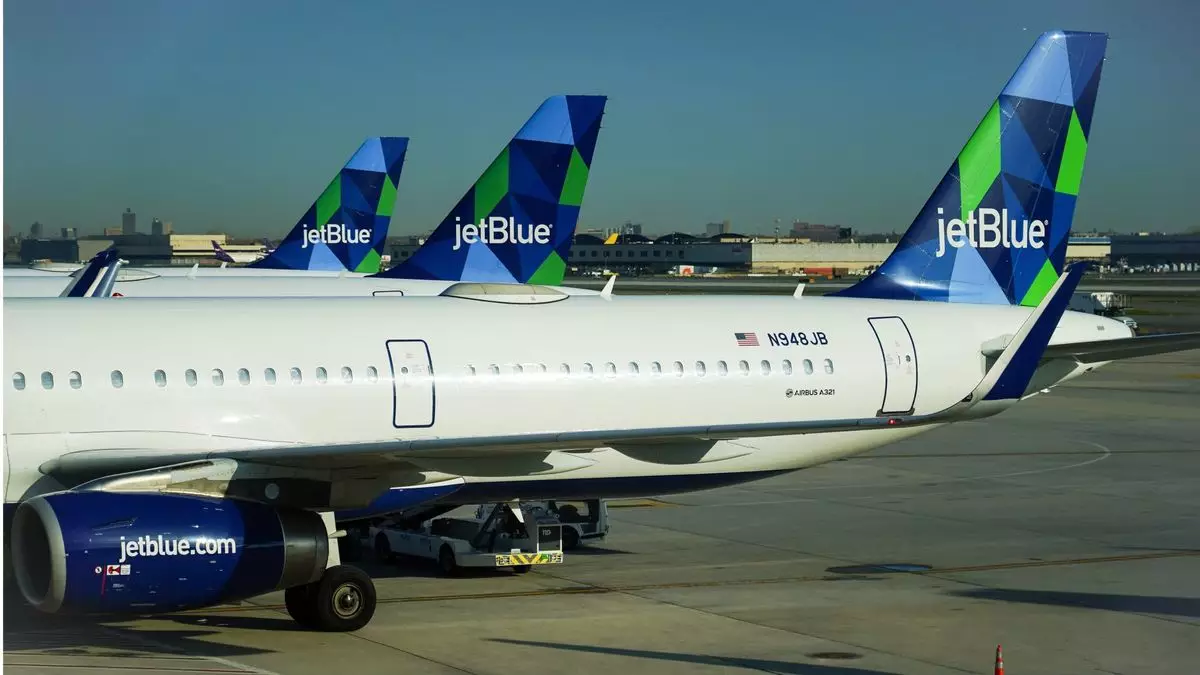In a significant move reflecting the growing accountability of airlines, the Department of Transportation (DOT) has imposed a $2 million fine on JetBlue Airways for its chronic flight delays between 2022 and 2023. This ruling underscores the DOT’s stance on ensuring that airlines maintain realistic scheduling practices. The fine stemmed from a review of four specific flights that showcased excessive tardiness, arriving over 30 minutes late more than half the time for months on end. Such recurring delays are taken seriously under DOT regulations, which consider them a breach of fair operational conduct in the airline industry.
The regulatory body emphasizes that airlines must maintain a standard of operational reliability; failure to do so allows the DOT to intervene under claims of unfair or deceptive business practices. This particular action against JetBlue marks a precedent as it is the first instance the DOT has ever penalized an airline for chronic delays, signaling a new era of regulatory vigilance and accountability in the aviation sector.
Chronic flight delays pose considerable inconveniences to passengers, leading to missed connections, disrupted travel plans, and overall dissatisfaction with air travel. The flights in question connected several busy routes, including New York’s JFK to Fort Lauderdale and Orlando, and between JFK and Raleigh-Durham—routes that are essential for both business and leisure travelers. The chosen flights faced extended delays over consecutive months, indicating systemic scheduling issues within JetBlue’s operations.
JetBlue’s defense against these findings included attributing some of the delays to external factors, primarily air traffic control staffing shortages. This argument highlights a more extensive and multifaceted challenge within the aviation industry. Insufficient air traffic controller staffing, particularly in busy regions like the Northeast and Florida, complicates the operational reliability of airlines. JetBlue urged for the modernization of the air traffic control system, illustrating a need for broader infrastructural investment to support the demands of modern air travel.
As part of the settlement, JetBlue agreed to allocate $1 million directly to the U.S. Treasury, while the remaining half will serve to compensate customers affected by delays that are within the airline’s control. This proactive beneficiary mechanism is designed to improve customer relations, as it reinforces the airline’s commitment to addressing operational issues head-on. Customers affected by cancellations or delays exceeding three hours will be eligible for compensation in the form of flight vouchers, ensuring that those most negatively impacted are somewhat compensated for their troubles.
This initiative not only addresses the immediate fallout from the identified delays but also indicates JetBlue’s acknowledgment of its shortcomings and a willingness to rectify them. While the measure is commendable, it raises questions about how well similar compensatory practices could be implemented across the industry, which frequently faces delays due to a variety of operational challenges.
Continued Monitoring and Future Prospects
JetBlue’s performance has historically lagged behind its competitors, which raises concerns about its long-term viability in an increasingly competitive airline market. The airline recorded an on-time performance rate of only 74.5% in 2024, ranking it near the bottom among major U.S. carriers. However, there are signs of improvement, as the airline reported a notable reduction in delayed flights compared to previous years.
The Federal Aviation Administration (FAA) is actively working to boost air traffic controller staffing, having met hiring goals recently and aiming to recruit thousands more in the coming years. While these efforts may alleviate some of the operational pressures faced by airlines, the question remains whether it is sufficient to prevent future penalties or whether improved scheduling practices will become a mandatory focus for airlines like JetBlue moving forward.
The DOT’s actions against JetBlue serve as a critical reminder of the importance of operational accountability in air travel. As the industry navigates the complexities of staffing shortages and increasing demand, airlines are urged to adopt more realistic scheduling practices to avoid regulatory scrutiny and maintain customer trust. The JetBlue case may just be the catalyst needed for systemic change across the entire aviation industry.


Leave a Reply